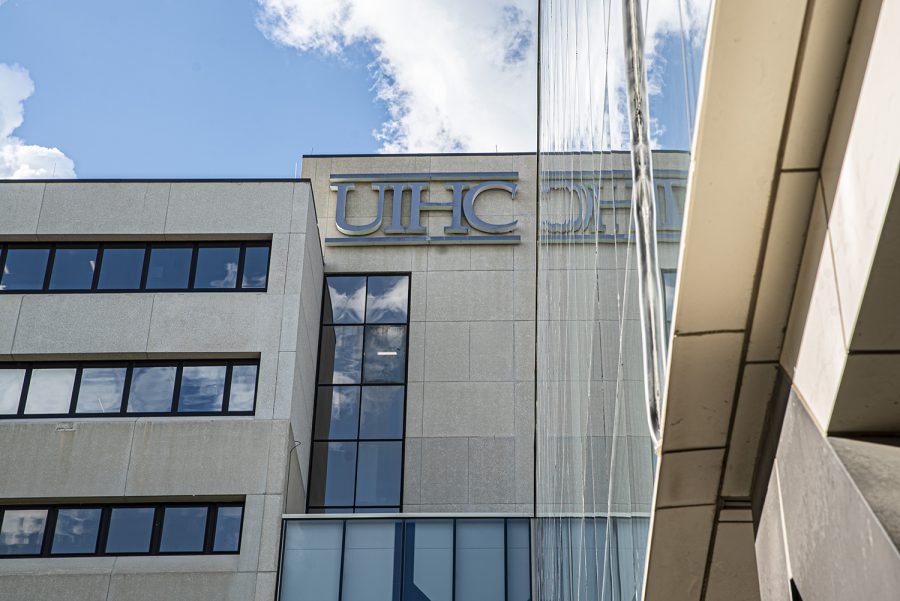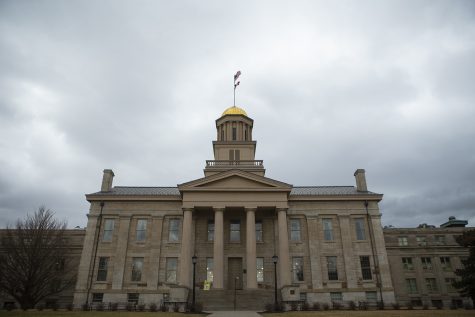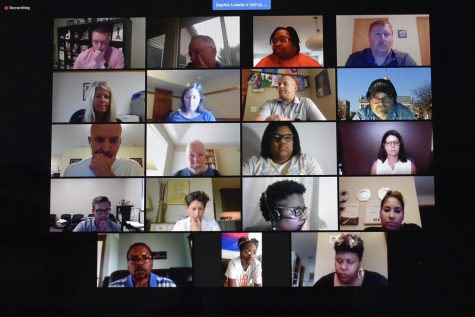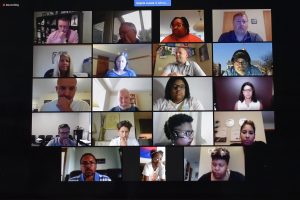University of Iowa Hospitals and Clinics oncologist uses liquid biopsy to detect leftover cancer in patients
Medical Oncologist Pashtoon Kasi is working with other researchers in the UI community to improve cancer-patient care and reduce the need for invasive procedures.
University of Iowa Hospitals and Clinics are seen on Tuesday, June 23, 2020.
July 1, 2020
University of Iowa Hospitals and Clinics Medical Oncologist Pashtoon Kasi is working with other researchers on campus and around the world to develop liquid biopsy and DNA tests that will detect leftover cancer cells in patients.
The Signatera liquid biopsy test is a non-invasive procedure that allows doctors to learn information about a patient’s cancer through a blood sample, Kasi said. This test was created by Natera, a company with a research focus on non-invasive procedures, particularly in pregnant women.
The assay — a research method that measures the amount of cancer in a patient’s DNA — is a two-step process, Kasi said. First, doctors send a sample of cancer cells that were taken out of a patient’s body. Then, they create an individualized test for the patient. Doctors look at mutations within the cancer cells and compare it to the blood sample they collected from the patient after their treatment.
As COVID-19 continues to spread, the liquid biopsy test helps cancer patients by reducing the amount of times they will need to go to the hospital for testing, Kasi said.
“Cancer patients are up to three times more at risk of complications, as well as dying, from COVID,” Kasi said. “We’ve been trying to judicially minimize the number of trips anybody would have to come to the cancer center or come to the hospital.”
Compared to other methods of cancer detection, the liquid biopsy method is much quicker, said UIHC Medical Oncologist Yousef Zakharia.
RELATED: UI research team finds breakthrough in epilepsy research
Instead of waiting months for results, Kasi said the liquid biopsy allows doctors to get results within seven to 10 days.
UI College of Pharmacy Bighley Chair Aliasger Salem said therapies and interventions are more effective when the cancer is discovered early on. Without having to do an invasive tumor biopsy, doctors can improve patient care.
“One of the advantages of being able to take multiple samples of blood at a time is that you can understand how the tumor is progressing, and you can also identify whether the tumor’s characteristics are changing over time,” Salem said. “You can tailor the therapy to the particular characteristics of that tumor.”
Kasi said he got involved with this research because he wanted to figure out ways to improve patient care after a cancer diagnosis.
“A lot of times we are unable to see the tumor cells on the scans, because those lesions are not big enough or they are still in a few cells floating around that we are unable to see,” Zakharia said. “If we have a tool like a liquid biopsy, we are able to see from a blood test that they do have residual tumor cells in their system that we are unable to see on their scans because they are too small
RELATED: UIHC joins international clinical trial for drug to treat COVID-19
Although testing is still in the early stages, Zakharia said it has the potential to save lives. Zakharia said he is grateful to be at the UI, where researchers continue to change the cancer field and improve the lives of patients.
“We have a lot of clinical trials and new diagnostic tests that we are offering,” Zakharia said. “I’m very happy to be at the university at the front line, fighting cancer with my colleagues.”


















